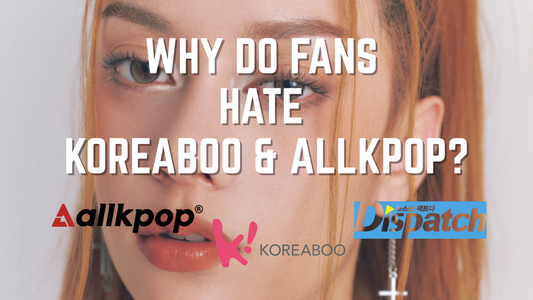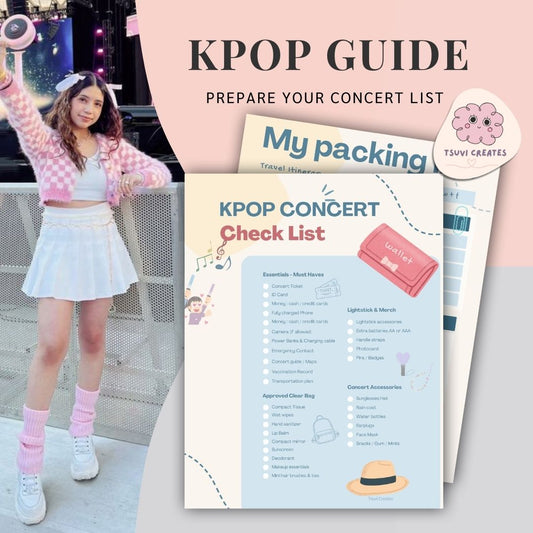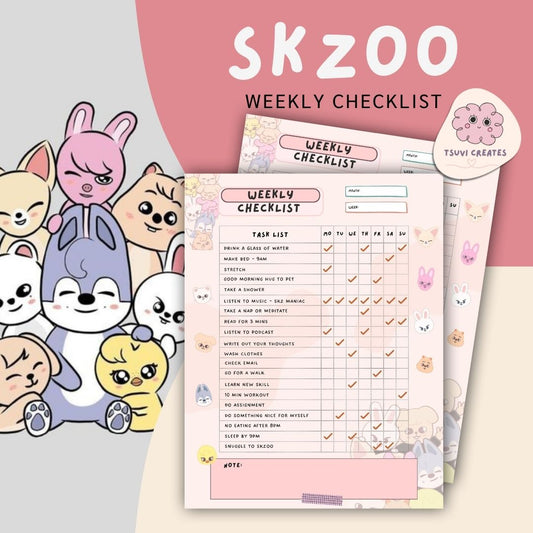Stepping into any K-pop space, even if it’s just for 10 minutes, you’re bound to run into some of the most recognizable (and let’s be honest, sometimes prolifically invasive) international blog sites. Type in “who is [insert idol name]” on Google, and the first few pages are flooded with them. I get it, keeping up with our faves is important. From comeback updates and variety show clips to gossip and fansite fancams, we all want to stay in the loop. And for many international fans, Koreaboo and Allkpop were the first platforms that gave us a glimpse into the Korean entertainment world. They were supposed to make us feel connected, like we weren’t missing out because of the language barrier. But instead, they’ve done the complete opposite. These platforms stopped being reliable sources and started becoming the villains in the story.
Allkpop launched in 2007 under 6Theory Media and was, for a long time, the go-to for English-language K-pop news.

Koreaboo entered the scene in 2010, offering a mix of translated news, memes, and pop content, and even partnered with Mnet Media early on. These blog sites were supposed to be a bridge, connecting international fans to the Korean side of the coin in a way that felt accessible and inclusive.

I don’t say this lightly, but over the years, these sites have become increasingly toxic. There’s no other word for it. They’ve repeatedly weaponized the language barrier, knowing that international fans heavily rely on them for context and used it to twist narratives, spark fan wars and pit fandoms against each other for engagement.
I’ve seen firsthand how a poorly translated Korean interviews can completely shift the tone of an idol’s words. Suddenly, fans are dragging idols over something they never even said. And the platforms? They say nothing. They post, collect engagement, and move on while fandoms erupt.

What stings the most is knowing that these platforms understand the power they hold over fans. At least Allkpop and Koreaboo still try to put on a front like they’re actual news platforms, but then there’s Pannchoa, probably the worst of them all. Pannchoa doesn’t even bother pretending. They just blatantly repost the most hateful, cherry-picked Korean netizen comments and mistranslations without a shred of moral compass. The amount of misinformation they’ve spread, especially on Twitter, is exhausting. They’ve become the go-to account for those looking to stir drama, knowing full well their posts will spark outrage. I can’t count how many times I’ve seen innocent idols or entire fandoms dragged based on a Pannchoa post with zero context and maximum damage. A few trolls on Naver suddenly become “BLINKs attacking BTS” or “ILLIT shading NEWJEANS.” It’s frustrating. It’s manipulative. And it’s honestly dangerous.

They've also become the perfect tools, used strategically by some entertainment companies to push narratives that benefit their own groups while targeting the competition. It’s no secret that certain labels plant stories or subtly feed off these platforms to sway public opinion and spark waves of hate toward rival idols. It’s a calculated move, and the international fans, most of whom are just trying to enjoy their favorite group, end up unknowingly or knowingly participating in these smear campaigns.
This doesn’t just create division, it creates hate. And it leads to real harm. Idols have suffered from these reckless headlines. In 2013, Allkpop leaked private photos from Block B’s social media, sparking one of the biggest betrayals fans have ever felt. During the T-ara bullying scandal, misinformation helped ruin the group’s image. Look at what happened to Garam from Le-sserafim.

Countless baseless dating rumors, netizen hate articles, and personal life exposés have created so much unnecessary stress for idols who are already under extreme pressure. Sure, both sites have tried to clean up their image. Koreaboo leaned more into meme content and less “news,” while Allkpop rebranded with a sleeker site and claims of better editorial standards. But changing your logo doesn’t change the legacy of damage you’ve caused.

And it doesn’t mean fans trust you now. The bigger issue here is how easy it is to manipulate the international fanbase when we depend so heavily on translation. I’m not fluent in Korean, and most of us aren’t. But that doesn’t mean we should blindly trust whatever is posted first.
We need to be more mindful. Wait for accurate sources. Read verified translations. Watch the clip ourselves, if we can. Because when we don’t, we give these platforms the power to keep exploiting our trust. We give them the fuel to turn our fandoms into battlegrounds, and they profit from every fight.
At the end of the day, K-pop fans deserve better. We deserve news that’s respectful, accurate, and honest. These artists pour their lives into their careers, and we as fans build entire communities around them. We’re not here to be used for outrage clicks. So yes, that’s why I, and so many others, have deep-rooted issues with what Koreaboo and Allkpop have become. They’ve manipulated our love for K-pop, twisted our trust, and made fandoms more toxic than they needed to be. And we’re done pretending it’s okay.









